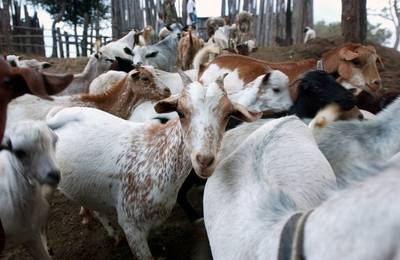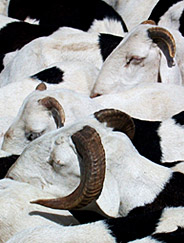Sheep
During a two-day meeting at the OIE Headquarters in Paris, around 30 experts presented and discussed the results of the VSPA-PPR pilot project (Vaccine Standards and Pilot approach to peste des petits ruminants control in Africa).
This 24-month project was initiated by the OIE, at the request and with the support of the Bill and Melinda Gates Foundation, and implemented in Burkina Faso and Ghana.
The project aims to contribute to the development of an overall strategy for the control and eradication of PPR (this strategy is being developed jointly by the OIE and the FAO through the GF-TADs initiative (Global Framework for the progressive control of Transboundary Animal Diseases).
By and large, the objectives of the project were attained through an approach that combined field pilot activities against PPR in Burkina Faso and Ghana, the establishment of a vaccine bank at, and the activities conducted by, the Pan-African Veterinary Vaccines Centre of the African Union (AU-PANVAC) to improve the quality of PPR vaccines that are produced in Africa.
The project’s actions were aimed at testing the influence of several factors, including:
Protocols for the monitoring and evaluation of the results of field operations were associated with conventional and participatory epidemiological studies, laboratory investigations (virology, serology before and after vaccination), sociological surveys of farmers and vaccination teams, as well as assessments of herd productivity following vaccination.
The results of these studies have identified the main factors for success or failure of immunizations. They showed that:
Large amounts of data have been collected and the exploitation of some of these data, in particular in terms of economic analysis, will exceed the time frame of this particular project
The findings of the closing workshop and electronic copies of the various reports (AU-PANVAC, CIRAD, OIE) will soon be available on this website.
For any additional information, contact [email protected]

